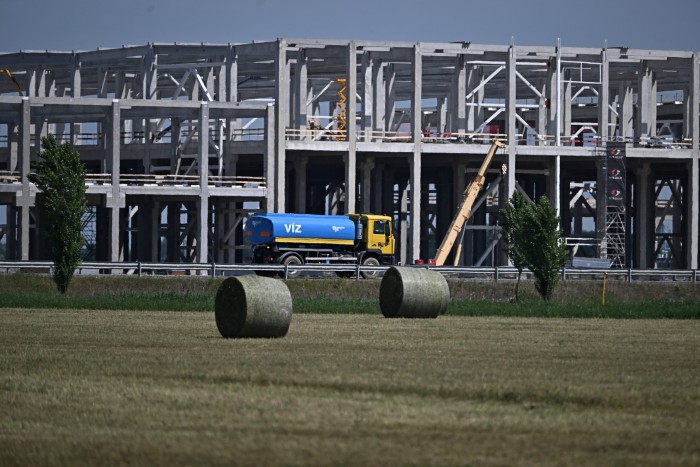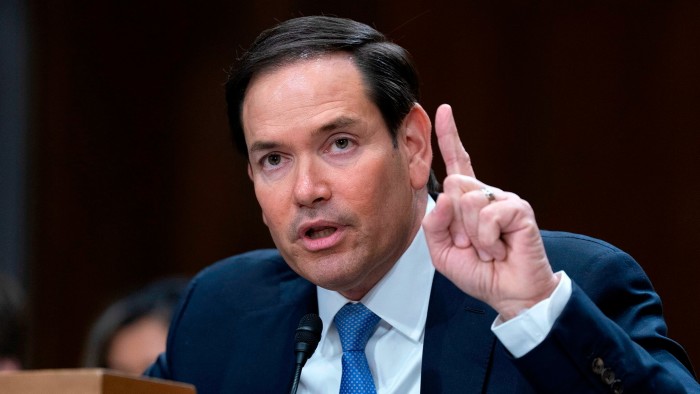Chinese direct investment in Europe rises for first time in 7 years

Unlock the Editor’s Digest for free
Roula Khalaf, Editor of the FT, selects her favourite stories in this weekly newsletter.
Chinese investment in Europe rose for the first time in seven years in 2024, driven by a surge in electric vehicle and battery projects in Hungary, even as Chinese firms increasingly shunned the UK, Germany and France.
Total Chinese foreign direct investment in the EU and UK climbed 47 per cent to €10bn last year, according to data from the Berlin-based Mercator Institute for China Studies and consultancy Rhodium Group.
While the rebound marked a break in the downward trend, total FDI was just a fifth of the 2016 peak and was heavily concentrated among a small group of firms, including battery makers CATL and Envision, tech group Tencent and carmaker Geely.
“The EU remains attractive for Chinese investment,” said Max Zenglein, chief economist at Merics. But he warned that Beijing could increasingly deploy corporate investment as “a tool for strategic influence”.
Facing mounting political scrutiny and trade tensions, Chinese companies have pivoted from mergers and acquisitions to greenfield investments. CATL’s €7.5bn battery facility in Debrecen and BYD’s planned €5bn electric vehicle plant in Szeged — both in Hungary — are emblematic of the shift.
Hungary accounted for 31 per cent of all Chinese investment in Europe in 2024, retaining its position as the top destination for a second consecutive year. In contrast, the combined share of the UK, Germany and France fell to just 20 per cent, down from an average of 52 per cent over the previous five years.
Prime Minister Viktor Orbán, widely seen as China’s closest supporter within the EU, sees Chinese capital as providing a vital pillar to the economy amid weak domestic growth.
China’s carmakers are under pressure to expand abroad as they grapple with overcapacity and faltering demand at home. The EU’s decision last October to impose tariffs of up to 45 per cent on Chinese car imports has further incentivised local production within the bloc.
Nevertheless, the study noted a sharp drop in new investment announcements by Chinese electric-vehicle manufacturers — down 79 per cent last year compared with 2022—2023 levels. Battery-maker Svolt, for instance, abandoned plans for two plants in Germany worth €4.2bn, while a European Commission preliminary foreign subsidy investigation into BYD’s Hungary plant could further dampen momentum, it said.
The decline was partially offset by a modest uptick in M&A. Tencent acquired Polish video game developer Techland for €1.5bn, though such dealmaking activity is expected to remain subdued. The traditional motivation for M&A — access to Western technology — has waned as China builds its own R&D capabilities.
Chinese investment in strategic sectors such as renewable energy is also drawing heightened scrutiny across Europe. Yet the authors of the study saw scope for a short-term easing in tensions, as some EU member states sought to avoid simultaneous trade conflicts with both Beijing and Washington, while China renewed a charm offensive aimed at Brussels.








